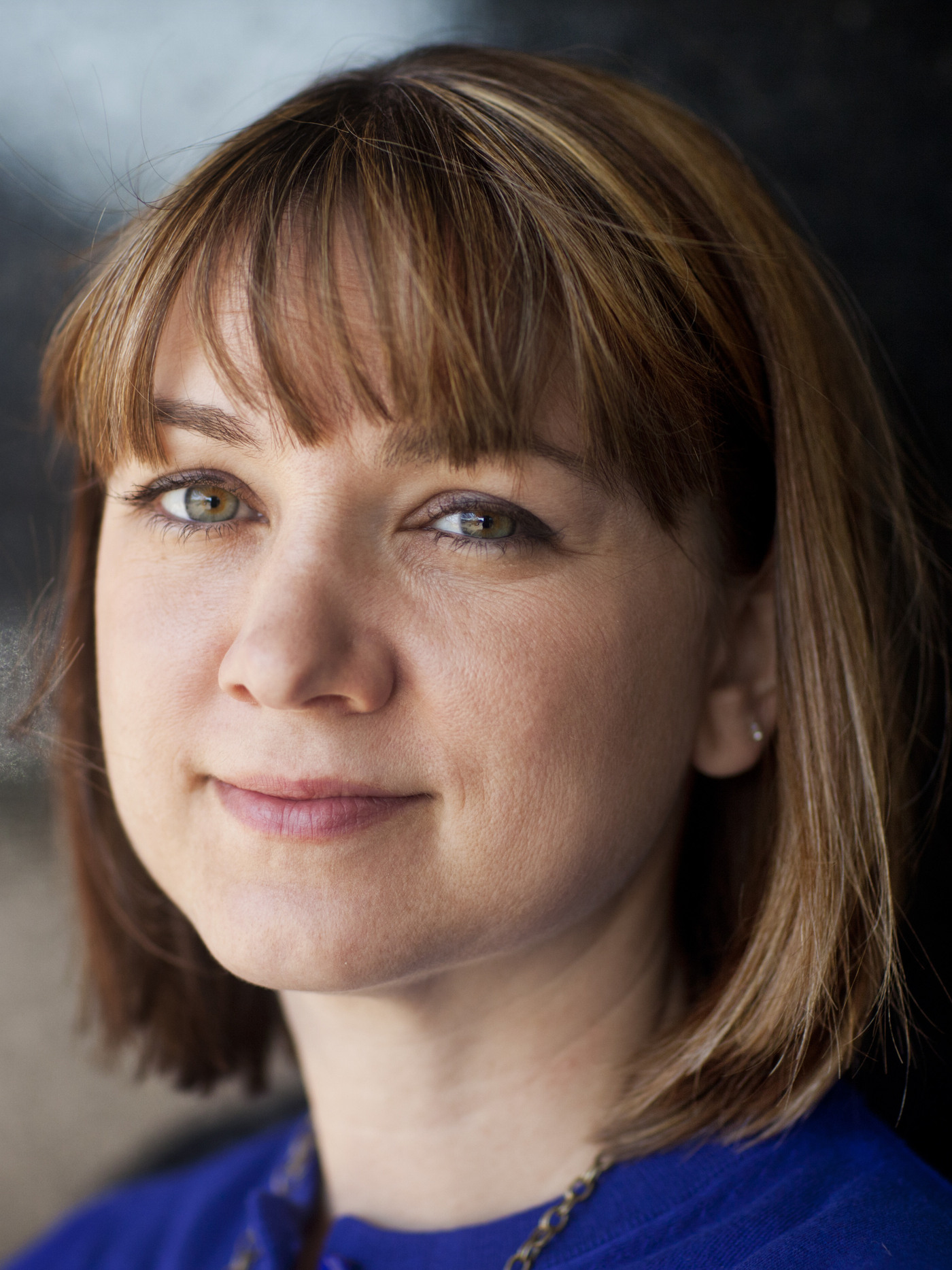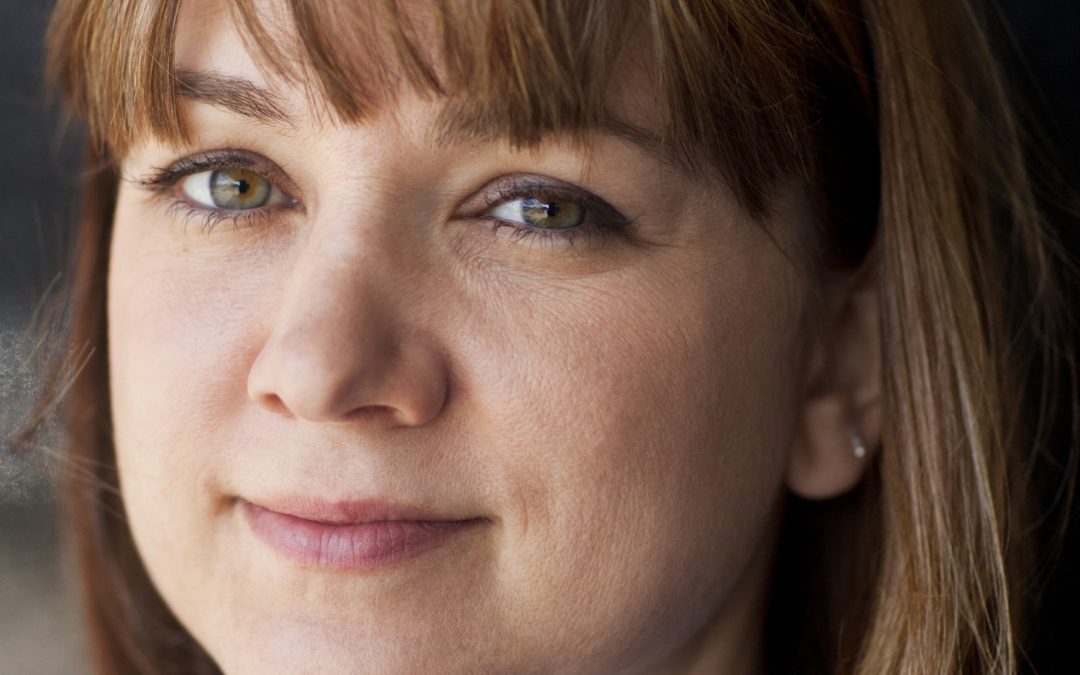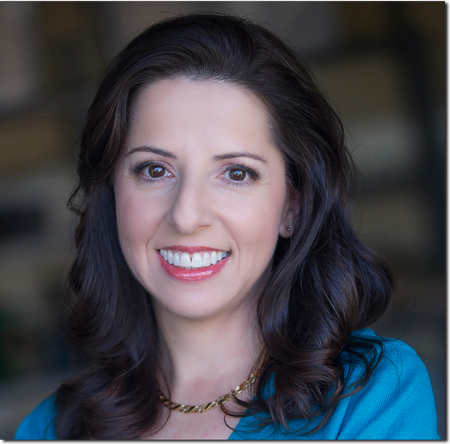I was working in D.C. recently, and when not preoccupied with trying to stay warm I took the opportunity to catch up with one of my favorite expat Californians, NPR’s Tamara Keith. Sitting in a little coffee shop near the Capitol, she shared her story of how a girl from a small town in California’s Central Valley made it all the way to being a White House correspondent for National Public Radio. Hint – even in radio, it’s always all about the writing!
RE: Give me a little bit of background – how did you get into this?
Keith: I’m going try to do this quickly because you could do a whole blog post on this long and sad tale. When I was a teenager I decided I wanted to be a reporter. Probably around the time I was 12 or 13. When I was 15 I started a column in the local newspaper in Hanford, California, the Hanford Sentinel. It was a teenage life kind of column. And then the summer before my senior year of high school I wrote letters to NPR personalities asking where I should go to college because I wanted to work for NPR someday. And I sent along my column to prove that I could put sentences together.
RE: So it all started with writing, even before radio.
Keith: It did. And it started with a letter writing campaign. So I sent these letters. We were going on a family trip around the country and to Washington, D.C., and amazingly several of the NPR people responded. Cokie Roberts left me an answering machine message but she didn’t have time to meet with me. Scott Simon had my family over to his apartment for like two hours. He talked about life and everything and I got advice about where to go to school and what to major in. He also told us about the story he was working on and he told it in this evocative way, and later we heard it on the radio and he had described it exactly, which was neat. The wilder thing was Liane Hansen, who was the host of Weekend Edition Sunday at the time, had her senior producer get in touch with me, and he said, ‘hey do you want to write essays for NPR? Now, as a teenager.’ That was 1995. So I started writing essays for NPR when I was in high school. And it was even before youth radio. It was ancient times.
RE: That’s really impressive. They clearly saw something in you. How did the essays work out? Did they read them on the air?
Keith: I actually read them on the air. Looking back I don’t think I had radio voice but I sounded like a teenage girl and that’s what they wanted. I really credit good editing with teaching me how to be a decent writer, and I got to work with an editor at a national network. NPR was a little hippy dippy back then, but the editor I got to work with was a tremendous writer and editor. So I’d send him these rough essays and we’d work through it. We worked through it on the phone. And he wouldn’t just take the thing I’d written and make changes and send it back – we would talk through every change and work through it together made make sure it was in my writing voice. His name was Greg Smith. He’s a professor now at American University, teaching journalism. He was a truly remarkable, wonderful editor. I would wake up at like 5 in the morning so I could call him at 8 o’clock Eastern time because I knew that’s when he had time to take time with me. I just pretended I liked to get up that early. And then when I was 19 or 20 the gig was up. I wasn’t cute anymore and they were done having a teen essayist.
RE: What were your essays about?
Keith: They were about me. Learning how to drive or what to wear. Just teen life issues. Personal essays.
RE: So unlike Lena Dunham, you did get to be the voice of a generation?
Keith: (laughs) I don’t know about that. They let me speak for kids, teenagers. And then I got an internship at KQED, which is a San Francisco station. And I also got TV internships. I did a TV station internship in Fresno, after I graduated from high school, that summer between high school and college. And for reasons I don’t understand, I think because of the NPR thing, they let me write much of the newscast.
RE: For those who don’t know, that’s a really big deal because interns are generally not even allowed to touch the station computer.
Keith: Obviously they had to make it better, but by the time I was done I knew how to write TV copy.
RE: It’s always all about the writing.
Keith: Yes, though I was also learning some of the presenting part of it. But I wasn’t really doing the heavy pencil audio gathering. I worked in Fresno for KQED for a couple of years, from 2002 to 2004 and then 2004 I spent in Ohio working for a member station there. It was $10 an hour part-time, but I got to cover a presidential race so there you go. And then I came back and got to work for KPCC covering the capitol in Sacramento from 2005 to 2006 and a half. And then 2006 I moved over to KQED. So every hear and half to two years I’ve changed jobs. I think that’s normal for the business. There were some lateral moves and I got new skills from every job.
RE: That’s a great lesson for anyone who wants to be in this business. You should always be in learning mode.
Keith: I still feel like I’m learning every single day.
RE: That’s not a bad thing, especially when it comes to covering politics. This is complicated stuff. The breadth of what you have to know is really wide.
Keith: Or what you have to figure out that day because it’s day’s news. More than any other job I’ve had, this White House job, you wake up one day thinking you’re doing a story about the Homeland Security bill fight and you end up doing a story about Yemen.
RE: Right. We’ve been talking about writing, but it’s also learning how to be a good, effective reporter. What were some of the things you feel like you’ve learned that coalesced all of that for you?
Keith: I think that figuring out that I could, in sort of short order, learn anything was very important, and figuring out that you just have to know the right people to call, and sometimes you have to ask somebody who the right people to call are, but if you call enough people you can get your mind around something. Or read enough reports or summaries of reports, given time constraints. But I sort of figured out how to be a quick study. And then also the very long struggled of finding my writing voice and making that match with my actual spoken voice.
RE: Expand on that, because that’s unique for radio. How was that process? How long did it take you?
Keith: I think in some ways I’m still working on it. But it’s really hard because you typically don’t write the way you speak, just generally. And then there’s all of this pressure to want to be sophisticated or fancy or whatever it is. In actual spoken conversation that’s not how we talk. So to figure out how to take those words out, not have a bunch of dependent clauses. Some aspects of it, they’re just tricks. Part of it is reading out loud as you write and part of it is just getting comfortable with who you are and how you speak.
RE: You would probably agree that for a long time NPR had a reputation of everyone being slow and methodical. But that is definitely not you, your work is not like that.
Keith: It’s not detached or formal.
RE: How did you develop that style of yours?
Keith: I think it is relatively close to who I am in the real world. I think developing that was just trying to get closer to who I am in the real world. And I just want to have fun. I truly do think about this. I think about a listener driving on a bridge, most likely the Bay Bridge, and I want them to stay awake. So a driving force in the way I write stories and the way I report is I want people to be engaged and awake and I don’t want them to fall asleep in their cars. I know it sounds funny but I say it in all seriousness. And I don’t think that’s always been the goal at NPR, but I think I came along at a good time, because I think that I came along at a time when that was beginning to be rewarded or valued. We don’t want to all sound the same. That’s not who America is.
RE: Was there a big adjustment? Covering the capitol is one thing – you have a regional audience, which is different than where you have a national audience. Was that a tough adjustment for you?
Keith: I think coming to the network actually made me more confident. Even when I was just the temp who was about to be laid off, I was somehow more confident being in the big shop with the big letters on the front that said NPR. I felt like, if I’m here, darn it I’m going to make the most of it. So I actually when I came made goals for myself that every story, and I can no longer keep this goal, but I wanted every story to have a real person in it and not just experts. I wanted every story to have some, I call it a piece of flair. Like in Office Space. I wanted every story to have one piece of flair that I can point to and say, that’s my little stamp. Because at some point – and this was actually an NPR editor who said this – you have a brand. I said, okay, whatever that is, I want to have a brand, and if this editor thinks I have a brand, that’s awesome, and if it seems to have been rewarded for it, I’m going for it.
RE: Sometimes we also need that to keep ourselves interested, because when you’ve written your 50th budget story, you maybe need to do things that keep you sharp.
Keith: I want every story to be about something. I don’t want it to just be a litany of things. I want it to be one thing where you come away and you know what that story was about. So sometimes I like it to come full circle, I like it to start with a strong declarative phrase. I want something that makes it so the audience feels like they’ve gotten something more than just a time block.
RE: I’m in awe of some of the stories you’ve done, the breadth of the topics. Yet you always have found unique angles. You’ve had an incredibly varied career, just in the last couple years. I think it’s a good lesson for anybody who is wanting to do anything creative. The stories are all different but it sounds like the thinking and the approach you take is pretty consistent.
Keith: Even on stories where I feel completely outmatched and I’m just struggling to figure it out, I want to get to a point before I write that story and we could be talking about over 20 minutes or something, but I want to get to a point where I feel like I’ve got it down enough that I can make it relatable and get that piece of flair in.
RE: What’s been your favorite story to cover?
Keith: I really love, and it didn’t get as much attention as I wish it did because I thought it was the best thing I’ve ever done, but I did a series over a year where I gave recorders to people who were unemployed and looking for work. It was in 2011 and I gave six people in St. Louis recorders and they did their audio diaries. It was a lot of work. There was a lot of source maintenance, calling them and saying, ‘no really, please record.’ Or saying, ‘ok you don’t need to take the recorder into the locker room at the gym.’ But it was so cool, because it was a slightly different kind of storytelling than I normally do. I was able to go places through their recorders. Conversations happened that wouldn’t have happened if I was there holding the recorder. And I feel like it was important. It was 2011, and the unemployment rate was coming down. We weren’t hemorrhaging jobs anymore. People in Washington were moving on already. The State of the Union that year, the resident said, well now we can start talking about deficit reduction. And yet, here were all these people out of work. I feel like my people telling their story was good for all the other people out there who were looking for work and felt alone.
RE: You posted something on Twitter a while back about things you would tell young people entering the work world.
Keith: That blew up on the Twitter.
RE: It did! So when you’re the person that the kid approaches now and says, ‘Ms. Keith I really want to work for NPR,’ what do you now in turn tell that young person?
Keith: I did an essay on Weekend Edition Saturday over the summer because I was filling in for Scott Simon as host and I did an essay about that letter I wrote and how he was so generous and helpful. So I now have a lot of young journalists contacting me. More than your average fan. But I thought I would get a stack of hand written letters, and I didn’t. I got a couple. Guys, that was basically an invitation. There is no young journalist out there, if they had sent me a letter there is no way I couldn’t respond based on the thing I had just said on the air. I was in a position of, I was going to be super helpful no matter what. And basically nobody took advantage of it. Very few people. I just thought I’d get a stack and I didn’t get a stack. I got a couple of emails. I thought there would be more. But that’s okay. Maybe they weren’t listening Saturday morning but I’m pretty sure some parents sent that essay along to their kids. So here’s my general rule. If a parent, grandparent, aunt, uncle, friend of the family contacts me and says, ‘there’s this great young kid and you’ve got to help them’. I say, ‘here’s my email address.’ Young kid needs to get in touch with me themselves. If anything, what I did as a kid was I showed initiative, and if you want something you’ve got to push for it. That has to start at the very beginning.
RE: I just read a blog post about professional etiquette by Felicia Sullivan that talked about how time-consuming it can be to mentor others. How is it for you?
Keith: I spend a lot of time, probably more than my editor would appreciate, emailing with various former interns. I got an email the other day from an intern on Morning Edition who said that she had heard or read the essay and wanted to get coffee, and I said sure. And then she tweeted about and two other interns got jealous, so I ended up having coffee with three interns. Earlier I’m talking to two other interns who I had spoken to, I’m friend with one of their professors and I had spoken to their class over Skype. I do several classes a semester over Skype. It’s just the thing. I like doing it. I feel like people helped me and I want to help them.
RE: The work we do really is a team sport and you really should do everything you can within reason to be a good teammate, to help and colleague and the next generations. I think a lot of people who do this get insular and they forget you need to get out.
Keith: And I feel like I get something form every one of those conversations. I learned something about myself or something about what cool podcasts are out there right now. I’m talking to young people who are like I used to be and I learn from them. So it’s not a one-way street. I don’t feel like I’m being leeched by being helpful. And sometimes I don’t feel like I’m being very helpful, but you need encouragement.
RE: What’s in the future? Maybe a book? What other things also drive you as a creative person?
Keith: Someday I would like to do a book, but I don’t know yet what it would be about. I guess I haven’t had my book hit me on the head yet. I started on a proposal for one about my unemployed project, but I was told it was too depressing and that nobody would want to read it. But maybe if I go back after five years and revisit it and put a bow on it, maybe somebody would be interested. Or maybe not. I want to get better at being a White House correspondent. I want to be really good at it someday.
RE: So you’re looking to be the go-to person about what is going at the White House for NPR?
Keith: For like the next five to eight years. And then I’m going to need a break.
RE: Brave question…How old are you?
Keith: Ha! I’m 35.
RE: I only ask because you are pretty young for being in this position. But your achievements speak to the things that make anybody successful – and something writers everywhere need to remember – which is to not be deterred. Because you’re going to hear no a lot more than you’re going to hear yes.
Keith: I’ve heard no a lot. But you just keep going. Even when I was sort of unemployed, I just kept pushing. Well, I did buy a pair of sweatpants, but I didn’t let myself wear them very often. (laughs)
Tamara Keith can be heard regularly on NPR. You can also keep up with her via her blog, Adventures in Radioland.



